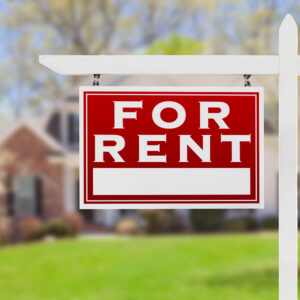Philadelphia and neighboring New Jersey are experiencing a historic housing crisis. Two out of five (40%) households were cost-burdened in 2022 in Philadelphia, meaning they spend more than 30% of their income on housing. Similarly, in New Jersey, there is an estimated shortfall of 200,000–300,000 affordable housing units.
This affordable housing shortage is simply not getting the attention it deserves. Despite robust economic activity and a diverse, well-educated population, the region’s livability is in a dire state of decay with the Newark, Jersey City, and Philadelphia metro areas notching some of the highest rates of housing underproduction nationwide.
Thankfully, statewide efforts by Governors Josh Shapiro and Phil Murphy have sought to remedy housing deficits. Last month, Pennsylvania enacted a plan that includes a focus on building more homes in communities, while New Jersey has sought updates to zoning codes and residential planning processes. But the acute issues in the Mid-Atlantic will require bold measures to meaningfully increase the local supply of housing that alleviates the cost strain on city households.
Unfortunately, local lawmakers have different ideas. Specifically, there has been a surge in legislation aimed at banning analytical pricing tools used by property managers, alleging that landlords somehow use this technology to drive up rental rates. The City of Philadelphia is on the verge of passing a bill, and New Jersey is considering a measure of its own.
The truth is that the bills, while attempting to appear pro-consumer, have confusingly tried to pin the entirety of our housing woes on an artificial intelligence (AI) software company called RealPage.
The technology is effective in relaying changing conditions and recommended rates, but outlawing the software won’t change the true market value of available units. Such a ban doesn’t address the underlying problem – that rents will continue rising due to lack of inventory in the face of high demand.
Finding a “fall guy” is often considered an easy way out of a problem, so it’s no surprise that some other cities have also pointed the finger to distract from the real problem. San Francisco recently passed an ordinance banning algorithmic systems for helping to track changing market conditions, which once again sidesteps the massive elephant in the room. In the midst of a housing crisis, San Francisco suffers from some of the longest timelines for anyone attempting to build new housing.
The city playbook to create red tape and lines of taxation is nothing new, but targeting technology that does math because you don’t like the answers is misguided.
New Jersey and Philadelphia are widely considered top centers for innovation, crowned by esteemed institutions and major players in the tech space. New Jersey’s technology sector accounted for 184,400 jobs, while innovation in Philadelphia generates $38 billion to the economy and supports over 120,000 jobs. The region should be proud to be on the leading edge of the nation’s global technology race and AI development that stands to contribute $1 trillion to the United States economy over the next decade.
But this growth and the many thousands of associated jobs are under siege with the new hammering of innovative tech. Some lawmakers’ perspectives on next-gen computing power goes far beyond just skepticism. Their ideas to halt instruments of automation and AI capabilities directly undercut many of the benefits delivered to area residents. So, why unravel one’s reputation as a technology leader?
Certainly, the pressure to tackle common affordability challenges, like with housing, is enormous. But it has led to hasty decision-making that hurts the economy and discourages investment in new housing, because investors would be barred from using modern tools to manage their properties. There is still hope, however – a turnaround can begin with lawmakers seeing the big picture: The United States is suffering from a housing shortage of about four million to seven million homes, and the Mid-Atlantic region certainly is not exempt.
The solution to addressing this shortage is straightforward: Support the permitting and construction of single and multifamily homes.
Rather than weakening technology that makes the region strong by passing harmful bans against algorithms, both Pennsylvania and New Jersey should rethink onerous red tape around home-builders’ efforts and incentivize the building of more housing.
Fixing the affordable housing crisis starts with a pro-construction approach to increase supply and meet demand…not a misguided ban on software that tracks prices and market conditions for a very small percentage of rentals. Local city councils and states should stop targeting number-crunching technologies and embrace solutions that will actually change the numbers and bring rent down.

